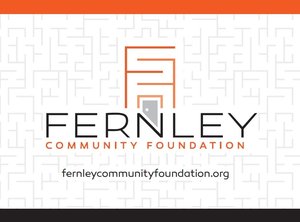Washoe DA seeks funding for Gang Unit to fight violent crimes
By Ray Hagar, Nevada Newsmakers
Washoe County District Attorney Chris Hicks said he wants to establish a strong Gang Unit within his office to combat gang-related crime.
“They (gang-related crimes) are so important because they are violent crimes that can’t be tolerated,” Hicks said Wednesday on Nevada Newsmakers. “So it is critical that we think smarter, look forward and try to do the best we can. And I think that (DA’s gang unit) would be a better way to do it.”
Hicks said he will seek funding from the Washoe County Commission for his gang unit but did not mention a target date for the discussion.
“I have a long term goal of getting a gang prosecutor, a gang unit and work with the regional gang unit from the ground up in prosecuting those cases,” Hicks said. “I think that would be very valuable to the community.”
Criminal gang activity has splintered and grown in Washoe County, Hicks said.
“It is prevalent. There are gangs here,” Hicks said. “It is different than it was a few years ago when you could isolate it down to a couple of gangs or a few rivals with various offshoots. There are a lot of different gangs now. We have had some violent crimes over the last six months that have been gang-related, so that is a concern I’ve always had.”

In October, an MS-13 gang member, who was extradited from El Salvador for the shooting deaths of two Sparks men in 2010, was found guilty of a double homicide and sentenced to life in prison, according to Marcella Carona of the Reno Gazette-Journal.
That MS 13 gang member, Luis Alejandro Menendez-Cordero was sentenced to two life terms without the possibility of parole, according to the RGJ. He was convicted of two counts of first degree murder for the deaths of 19-year-old Kevin Melendez and 21-year-old Moises Vazquez.
“That was a murder committed by an MS 13 gang member and the sole justification for the murder was he didn’t like the two guys he killed talking bad about the gang,” Hicks said. “So it was that senseless and that violent.”
Hicks said he would need about $200,000 to $300,000 annually from the Washoe Commission for the gang unit’s funding.
“I don’t know the exact number but I would need the funding for a full-time attorney and funding for an investigator, if I could have it my way,” he said. “That would probably be a couple hundred-thousands of dollars annually.”
Despite the recent successful extradition and conviction of MS 13’s Menendez-Cordero, Hicks said winning a gang-related prosecution is difficult.
“Our gang prosecutions are tough,” Hicks said. “It is very common that we lose witness cooperation. That is how gangs operate, with intimidation and violence. So they are always a struggle. I did many of them as a prosecutor before I was elected.”
Hicks, first elected in 2014, said he has also tried to establish an ongoing dialogue with Latinos and other minority communities, “because they are victims, too, or witnesses in our cases.”
“One of the priorities I had at the moment I took office was to improve upon my office’s community outreach,” Hicks said. “And we have done a very good job of that. Part of that is reaching out to those communities because they are victims too, or witnesses in our cases, and it is important that we have their cooperation.”
The Washoe DA’s office sometimes helps with immigration issues when pursuing gang-related convictions.
“We don’t want criminals getting off on certain charges or crimes because we can’t get a witness to come to court because they are scared of that potential outcome,” Hicks said. “And so we work with individuals in those situations. There are ways to get visas, U-visas are what they are called, for some of those immigrants, if that is necessary.”
A U visa is defined by the federal government as visa “set aside for victims of crimes who have suffered mental or physical abuse and are helpful to law enforcement in the investigation or prosecution of crimes.”
In forming his proposal, Hicks said he studied strategies other DA offices use in combating gang crime.
“I’ve looked into other communities and there are various other types of units such as this,” he said. “Even in my office now, we have specialized prosecutors but if I had it my way, this would be solely what that (gang crime) prosecutor would do and would be under my major violators unit.”
The DA’s gang unit would employ “a multi-disciplinary approach,” Hicks said.
“It would be very similar, in the way that I see it, as the way our child advocacy center works, with that multi-disciplinary approach,” Hicks said. “You would have a prosecutor working with detectives, working with social services, working with medical. That is the way we do it at the child advocacy center, right at the time the child mentions or discloses abuse. And the value of that is all of those specialties are working together to make a stronger case.
“I can see that multi-disciplinary approach also working in gang units,” Hicks said. “If we had a prosecutor who was regularly with the gang unit, communicating with them and hearing intel (intelligence). Because, let’s face it — it is an ever-evolving world here in our community. They could build those relationships and start working with them from the ground up. I think we would have stronger outcomes.”




